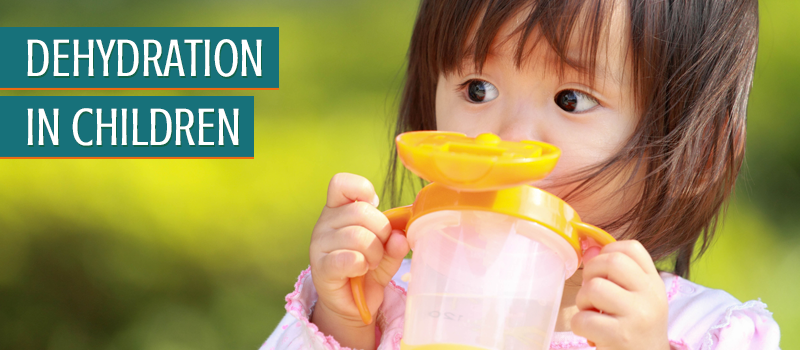 While dehydration in children is most commonly caused by illnesses such as diarrhea and fever, during the dog days of summer, just playing outdoors in the heat may be enough to cause mild dehydration in your child.
While dehydration in children is most commonly caused by illnesses such as diarrhea and fever, during the dog days of summer, just playing outdoors in the heat may be enough to cause mild dehydration in your child.
Dehydration may creep up on active kids and aware parents, so keep an eye open for dehydration’s symptoms. Children who lethargic, urinating less frequently as usual, are crying without tears or have sunken eyes may be in need of fluids. Before you begin rehydrating your child, move her into a cool, shady spot and switch from active play to something more passive, like reading.
Toddlers should drink 4-6 cups of fluid daily, with two of those being milk. Older kids’ fluid needs are easy to calculate: Kids (and adults) should drink half their bodyweight in ounces of water each day. For example, a 100-pound child should drink about 50 ounces of hydrating fluids every day. Once he’s playing outside in the heat or involved in athletics, that number can climb significantly.
All fluids aren’t create equal, either: Water’s always your best bet as a hydrating liquid. Many fruit juices contain a lot of sugar, so look for naturally sweetened types to cut sugar intake. Some parents add additional water to juice drinks to help dilute sugar content and help hydrate children. Of course, caffeinated drinks such as sodas and ice teas are diuretics, and actually work against hydration.
If your child is suffering mild dehydration, have her rest and drink plenty of water. If you’re concerned about electrolytes lost through sweat, serve her Pedialyte rather than sports drinks, which also contain large amounts of sugar.
If your child is dehydrated and suffers from extreme lethargy, unusual fussiness, abnormally wrinkled skin or cold hands or feet, they may need to see a doctor or Pediatric Urgent Care to treat their dehydration.
